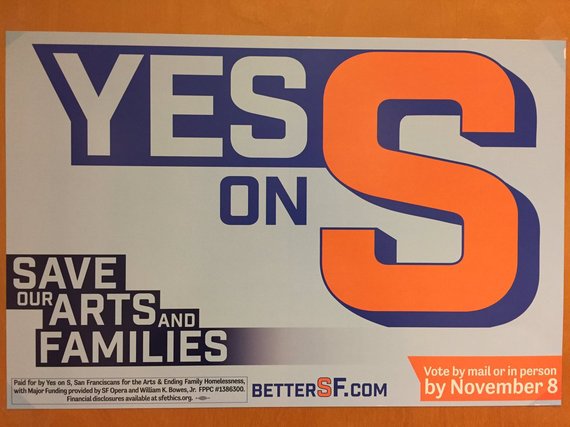Like many of our colleagues in the national nonprofit and cultural communities, we at the League of American Orchestras have been discussing the great divisions in our country underscored by the election, and trying to figure out what they mean for our work. At least one thing seems clear: everything is related. The fates of our organizations, our people, and our art form are inextricably bound up in the broader currents of our nation and world, which we ignore at our peril.
The erosion of a common belief in civil society and the mistrust of a 'public space' that requires government participation for sustenance cannot be good for the arts, to say nothing of the humanities, social services, education, or healthcare. The ability of orchestras to play their unique role among our fellow social sector sisters and brothers - of promoting our collective and individual humanity and health - is dependent on public policy at the federal, state, and local levels that is committed to democratic values and supporting the public sphere.
More than ever, this is a time for our action to be broad based -- for our partnerships to include all arts disciplines, artists, and arts organizations, especially those that have been historically under-supported, as well as the full array of nonprofits that keep our communities healthy. If that seems like "pie in sky," just click here and read about the coalition of arts organizations (big and small) and advocates for the homeless in San Francisco that advanced Proposition S -- a single ballot measure to provide financial assistance from the hotel tax to artists and the homeless alike. While the measure did not receive the two-thirds majority needed for passage, the effort succeeded in binding together a diverse coalition in pursuit of common cause.
 Proposition S in San Francisco was supported by a broad-based coalition of arts and other nonprofit organizations
Proposition S in San Francisco was supported by a broad-based coalition of arts and other nonprofit organizations
And, while as arts organizations our role may not primarily be that of the architects and designers of America's economic and political order, we can do our work in a way that models the participatory democracy we believe in. I don't mean simply by performing music for its power to bring people together. If we stop there, we have underutilized the full capacity of the music we create.
I do mean making our decisions and acting in ways consistent with our values. In her book, Not For Profit: Why Democracy Needs the Humanities, University of Chicago philosopher Martha Nussbaum argues that for a democracy to work successfully, we must cultivate several key abilities associated with both the arts and the humanities: "the ability to think critically, the ability to transcend local loyalties and to approach world problems as a citizen of the world, and finally the ability to imagine sympathetically the predicament of another person."
She goes on to define the spirit of the arts and humanities as "searching critical thought, daring imagination, empathetic understanding of human experience of many different kinds, and understanding of the complexity of the world we live in."
If we do believe these to be among our unique capacities in music and all the arts, then we must revisit our values and acknowledge that we still serve too narrow a slice of our communities. The arts ecosystem is filled with inequities resulting from choices, conscious or not, about who the arts are for, how resources are distributed, how and to what degree artists are supported, and the norms of engagement, partnership, and participation.
If we want music to fully contribute to the democratic process, then we must consider whether the concert experience is welcoming to others besides our traditional audiences. And if we want to figure out how to address these admittedly complex challenges, then we must reach out to other voices besides our own. If ever there was a time to get out of our bubbles and get to know others whose views may differ from ours, this is it.
The League of American Orchestras will continue to directly engage in the federal policymaking process in partnership with the broader nonprofit sector, we will increase our members' capacity to do the same at the state and local levels, and -- through our power to convene -- we will relentlessly seek opportunities to listen to and bring forward new voices that will inform the work orchestras do in their communities every day. Together, we can realize both our musical and our human potential to instill empathy, understand today's complexities, and imagine a new future.